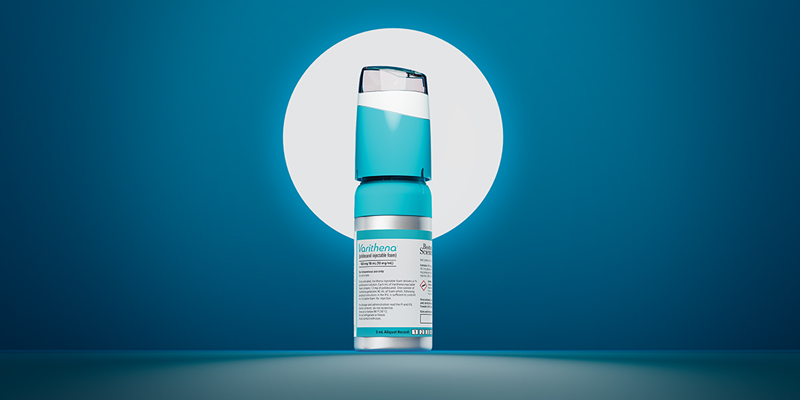A low-nitrogen solution that leads to increased safety and performance.

Easy and efficient for you and your staff to use.
Varithena’s low-nitrogen microfoam comes pre-formulated and delivers a reliably cohesive performance. The small, residual bubbles are rapidly absorbed for consistent results with reduced complications.
- O2:CO2 (65:35) gas mixture with < 0.8% nitrogen
- Reliably small bubbles (median diameter < 100 µm; all ≤ 500 µm)
- 7:1 gas: liquid ratio enhances blood displacement to allow for longer dwell time in the vessel
See how the treatment works.
This short, animated video shows you how Varithena treatment affects diseased veins once the microfoam is injected.
- Incompetent tributaries can be treated through either one injection site, or when warranted, multiple injection sites.
- A column of microfoam advances to fill the vein.
- Varithena displaces blood, effectively filling the lumen for circumferential contact.1
- Varithena achieves endothelial destruction with very low polidocanol concentration.
- The vein contracts, narrowing the lumen until vein has almost no volume.
- Residual, low-nitrogen bubbles are highly absorbable in blood and are swept away and absorbed in venous circulation.
Add versatility to your practice.
GSV above and below the knee, tortuosity, recanalization, large and small veins C2-C6. Treat them all with Varithena.
- Recurrent veins
- Above and below the knee
- Recanalization
- Wide range of diameters up to 25.9 mm
- Tortuosity

UDSS™ microfoam — the key to consistency.
Specially formulated with patented technology, Varithena produces a uniform density, size, and stability (UDSS) microfoam that displaces blood in the widest range of vessel shapes and sizes. Gentle and easy-to-deliver, this NTNT solution provides reliable results while reducing complications.

Varithena microfoam

Physician-compounded foam
Straight forward treatment steps.

1
Map the malfunctioning vein of the affected leg.

2
Position the leg, elevated at a 45° angle.

3
Generate the microfoam via the Varithena canister.

4
Administer the microfoam into the malfunctioning vein.

5
Compress the leg, patient walks out.
References
1. Eckmann DM. Polidocanol for endovenous microfoam sclerosant therapy. Expert Opin Investig Drugs. 2009 Dec;18(12):1919-27. doi: 10.1517/13543780903376163.




